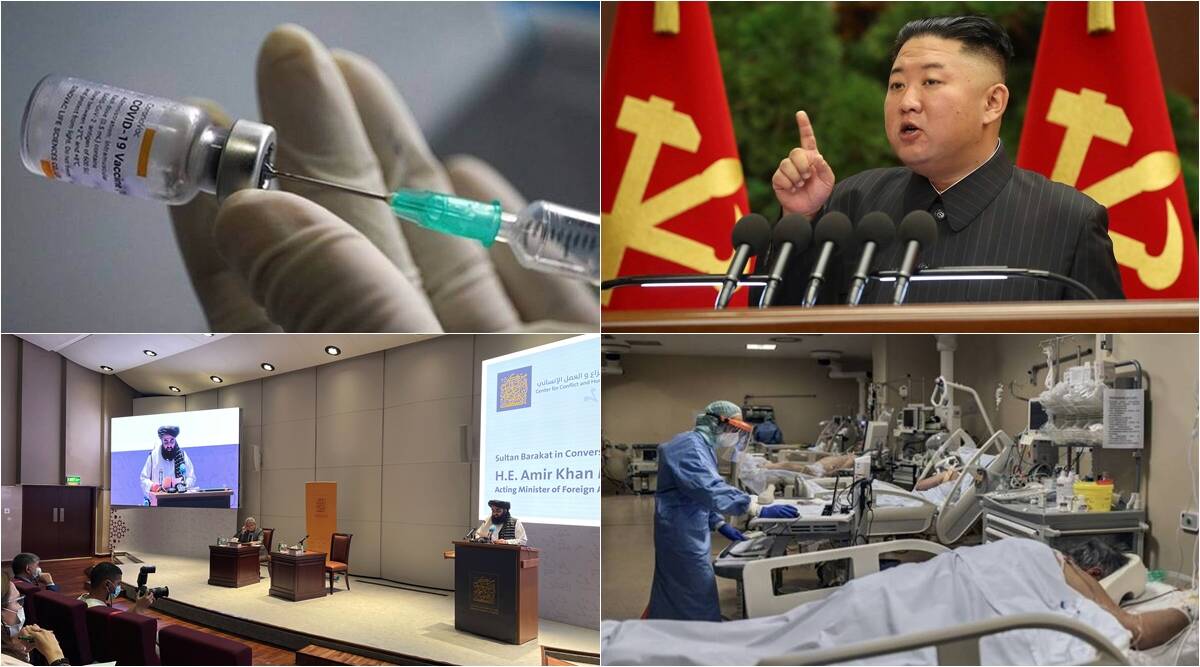England to drop class 'bubbles' and pupil caps from September

Government wants all pupils back full-time in new school year, education secretary says.
Ministers plan to drop restrictions on classroom “bubbles” to let all pupils attend school full-time in England from September, the education secretary has said.
Gavin Williamson said lifting the 15-pupil cap and expanding the size of protective bubbles would enable whole classes of 30 to be taught together, overcoming the lack of space that has resulted in schools having to rotate year groups.
“We’ve been creating bubbles of children in the classroom, creating a protective environment for those children. Currently that is at 15 – what we would be looking at doing is expanding those bubbles to include the whole class,” Williamson told the Downing Street coronavirus press briefing on Friday.
He said further guidance on safety would be issued in the next two weeks.
The UK coronavirus alert level was lowered from 4 to 3 on Friday, meaning transmission is no longer judged to be “high or exponentially rising”.
Williamson’s comments echoed earlier remarks by Boris Johnson, who said “watch this space” when asked about the physical distancing requirement for schools being cut from 2 metres to 1 metre, “if the science allows”.
“I want every child, every pupil, every student, back in September. I’m sure it can be done,” the prime minister said during a visit to a school in Hertfordshire to publicise the government’s £1bn catch-up plan for schools in England announced on Friday.
The plan was quickly criticised for ignoring the needs of 1 million young people aged 16-18, and for being an inadequate response to “the biggest challenge facing schools” in generations.
Under the plan, state schools in England would be given £650m to fund efforts to help pupils affected by the coronavirus lockdown, under which nurseries, schools and colleges have been closed to most children since mid-March.
While schools have made major efforts to provide remote learning, there are fears that pupils lacking parental support or internet access are in danger of falling behind their peers. But the extra funding is only to be applied to pupils aged between five and 16, provoking complaints from the heads of sixth form and further education colleges. Some of their students will have only seven months in the classroom until they sit exams next spring.
David Hughes, the chief executive of the Association of Colleges, said the funding proposals would fail to cover two-thirds of young people aged 16-18.
“It is indefensible to overlook the needs of the 700,000 in colleges,” he said. “I expect their exclusion from this announcement to be followed rapidly by clarification on the funding and support for college students. We are in contact with the Department for Education and hope to have this rectified as soon as possible.”
Matthew O’Leary, a professor of education at Birmingham City University, said: “Yet again, the government has ignored the needs of students in further education colleges. Despite having previously promised to make funds available to support 16-19 provision, further education has once again been left out, reinforcing how the sector seems to be invisible to this government.”
The Institute for Fiscal Studies (IFS) estimated that the £650m amounted to £80 per pupil, a 1% increase on current spending that still leaves spending per pupil 3% lower than in 2010. Luke Sibieta, a research fellow at the IFS, said that due to the exclusion of nursery and sixth-form pupils, the amount would rise to £88 per head.
The IFS said: “The loss of learning and the likely widening of educational inequalities since lockdown is the biggest challenge facing schools in generations. The £650m to be provided direct to schools this year … is modest relative to the scale of this challenge.”
The £1bn package will include a £350m subsidy for a national tutoring programme, to be established by a partnership including the Education Endowment Foundation (EEF). The funds are to provide 75% of the cost of providing one-to-one or small-group tuition, which the EEF recommends as the most effective form of remedial teaching.
Several headteachers who spoke to the Guardian expressed scepticism that such a programme could be up and running by the start of the next school year, in September, with its scope potentially including 1 million pupils receiving free school meals.
The EEF’s guidance states that a well-structured tutoring programme would cost around £700 per pupil for 12 weeks, and include 30-minute sessions five times a week. But it also states that “the evidence suggests that impacts are generally higher when delivered by teachers”.
The EEF is piloting a national tutoring programme involving four external agencies, including two that pay tutors and two that use unpaid volunteers.
A volunteer who signed up to one of the agencies involved said she was dismayed to discover her unpaid work to help disadvantaged children would be used by the government to claim it was funding efforts to repair the education lost during the lockdown.
She said she had no teaching experience and would only receive two hours of training before tutoring children, although the agency had given her a disclosure and barring service (DBS) criminal records check. The main requirement for volunteer tutors was that they have a degree and an A-level in the subject they were to teach, and a minimum commitment of one hour a week.
“It seems like the government is trying to give the impression that they are budgeting for professional teachers, and that feels like a trick,” she said.
Nick Gibb, the schools minister, said the government was working with experts on how best to support under-fives and those aged 16-18, and “we’ll have more to say on that soon”.
Geoff Barton, the general secretary of the Association of Schools and College Leaders, said: “It is very important that this guidance is supplied to schools and colleges as soon as possible. They are doing their best to put in place plans for September but they have so far had to do this in the dark without any input from the government.”









Comments